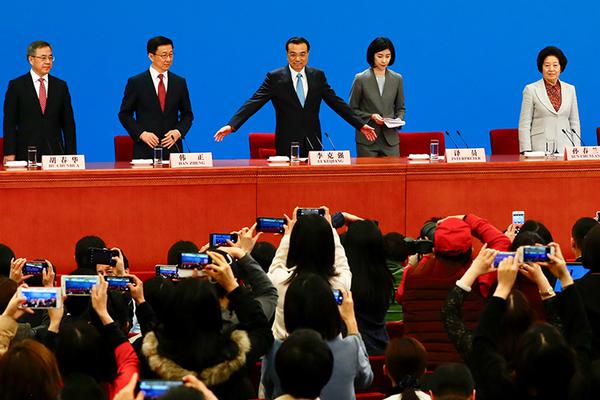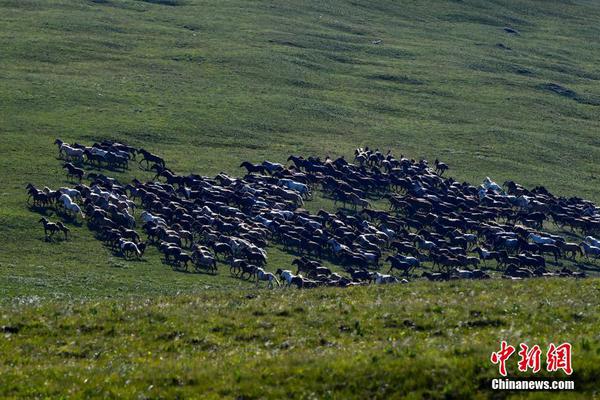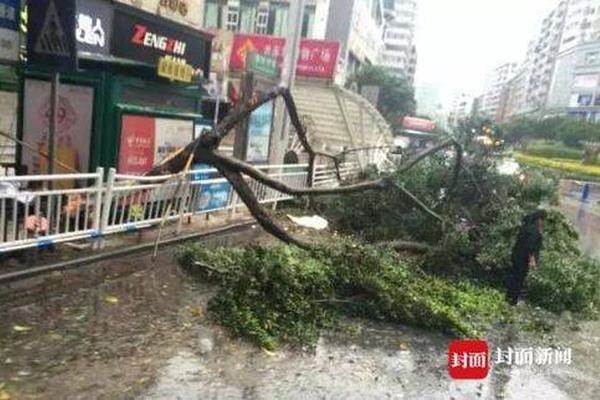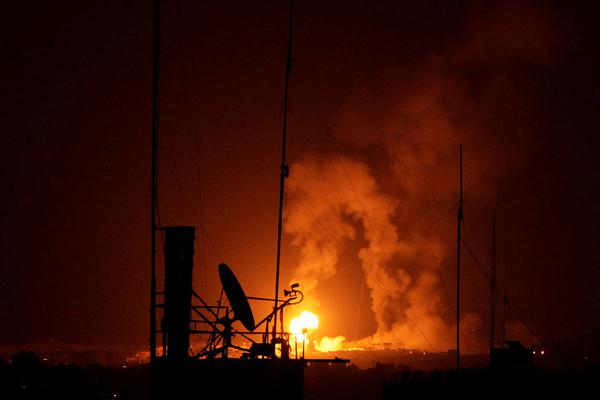The eroticized sexual behaviorfirst seeds of SpaceX's Starlink project will soon be planted.
On Saturday, Elon Musk tweeted out a photo of 60 satellites loaded into the fairing, or nose cone, of his company's Falcon rocket. The hardware represents a first step toward completing Starlink, an eventual satellite constellation that will beam high-speed internet down to Earth from space.
The fairing is the same one that carried a Tesla Roadster into space in 2018. Musk included a photo of that as well, just to give his followers a better sense of scale. Where the Roadster barely filled up the bottom portion of the fairing's interior, the satellites look positively crammed in.
This Tweet is currently unavailable. It might be loading or has been removed.
This first set of satellites is expected to take to the skies in the coming days, perhaps as early as Wednesday. Musk warned that there might be issues since this is the first proper Starlink mission following an early 2018 launch that sent two demo satellites skyward.
But there are also many more launches to come. Starlink will ultimately depend on a network consisting of thousands of satellites, but even in its earlier form the eventual constellation will require multiple launches before it's partially operational.
This Tweet is currently unavailable. It might be loading or has been removed.
The dream of high-speed internet delivered from space may be realized by Starlink, but it's going to take a lot of work. SpaceX plans -- and has received Federal Communications Commission approval -- to send almost 12,000 satellites into low orbit where they'll split into three orbital shell-encased clusters arrayed around Earth.
SEE ALSO: SpaceX just blasted a critical NASA instrument into spaceWhile the long-term project shows great promise, it's also not without risks. Sending that much hardware into orbit -- each fuel-carrying satellite weighs around 900 pounds -- adds to an already risky accumulation of space junk in the immediate vicinity of Earth.
UPDATE: May 13, 2019, 8:26 a.m. EDT An earlier version of this story incorrectly referred to the federal agency that granted Starlink approval as the Federal Trade Commission. It is actually the Federal Communications Commission.
(Editor: {typename type="name"/})
 Precursors to Today's Technology: These Products Had the Right Vision
Precursors to Today's Technology: These Products Had the Right Vision
 Best headphones deal: Get Beats Solo 4 Minecraft Edition headphones for 50% off
Best headphones deal: Get Beats Solo 4 Minecraft Edition headphones for 50% off
 Skullcandy earbud deal: Get two for $34.99
Skullcandy earbud deal: Get two for $34.99
 Explainer: Age
Explainer: Age
Google's data center raises the stakes in this state's 'water wars'
 Endless emails, map requests, web searches, and everything else we do online requires the use of ene
...[Details]
Endless emails, map requests, web searches, and everything else we do online requires the use of ene
...[Details]
NYT Connections Sports Edition hints and answers for January 19: Tips to solve Connections #118
 Connections: Sports Editionis a new version of the popular New York Times word game that seeks to te
...[Details]
Connections: Sports Editionis a new version of the popular New York Times word game that seeks to te
...[Details]
The 15 most WTF moments from 'Severance' Season 2, episode 1
 Severancehas finally returned, with a Season 2 premiere that plunges us straight back into the unset
...[Details]
Severancehas finally returned, with a Season 2 premiere that plunges us straight back into the unset
...[Details]
U.S. Supreme Court rules TikTok ban can move forward
 The U.S. Supreme Court has ruled to uphold the forthcoming ban of TikTok, which will see the app pha
...[Details]
The U.S. Supreme Court has ruled to uphold the forthcoming ban of TikTok, which will see the app pha
...[Details]
Apple is advertising on Elon Musk's X again
 Over a year ago, Appleremoved its adsfrom X afterElon Muskbacked a series of antisemitic posts from
...[Details]
Over a year ago, Appleremoved its adsfrom X afterElon Muskbacked a series of antisemitic posts from
...[Details]
Fritz vs. Monfils 2025 livestream: Watch Australian Open for free
 TL;DR:Live stream Fritz vs. Monfils in the 2025 Australian Open for free on 9Now. Access this free s
...[Details]
TL;DR:Live stream Fritz vs. Monfils in the 2025 Australian Open for free on 9Now. Access this free s
...[Details]
How tech billionaires learned to love Trump
 The sight of Elon Musk, Jeff Bezos and Mark Zuckerberg sitting together at Donald Trump's inaugurati
...[Details]
The sight of Elon Musk, Jeff Bezos and Mark Zuckerberg sitting together at Donald Trump's inaugurati
...[Details]
Best MacBook deal: Save $200 on the M2 MacBook Air at Best Buy
 SAVE $200: As of Jan. 16, snag 13-inch Apple MacBook Air (M2 chip, 16GB memory, 256GB SSD, midnight
...[Details]
SAVE $200: As of Jan. 16, snag 13-inch Apple MacBook Air (M2 chip, 16GB memory, 256GB SSD, midnight
...[Details]
Apple, Tesla, Spotify: The tech announcements that never happened in 2024
 2024 was a huge year for tech, with artificial intelligence fast becoming the most promising tech ad
...[Details]
2024 was a huge year for tech, with artificial intelligence fast becoming the most promising tech ad
...[Details]
TikTok ban: VPN not working for many in US as they attempt to bypass ban
 Americans faced the stark reality of the TikTok ban Sunday as ByteDance blocked access to the app in
...[Details]
Americans faced the stark reality of the TikTok ban Sunday as ByteDance blocked access to the app in
...[Details]
Amazon Prime members gets 10% off Grubhub orders through Feb. 17

NYT Connections hints and answers for January 17: Tips to solve 'Connections' #586.

接受PR>=1、BR>=1,流量相当,内容相关类链接。